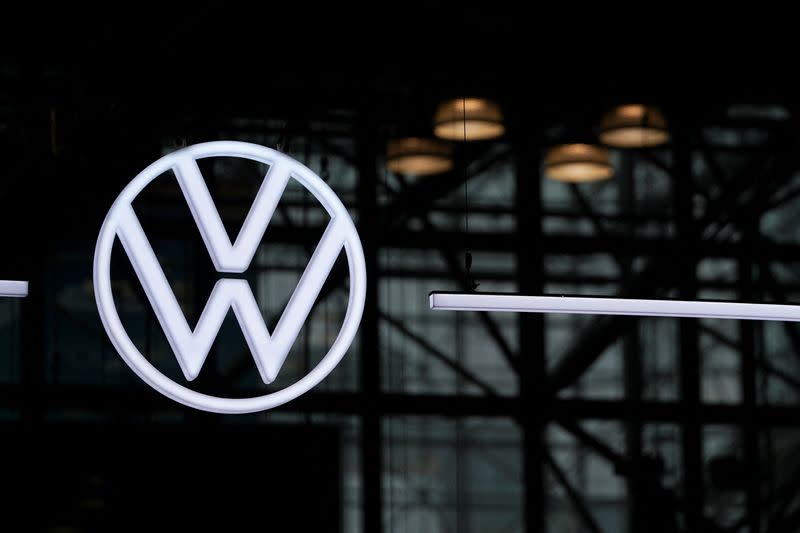VW eyes job cuts at Zwickau plant on low e-car demand -dpa

BERLIN (Reuters) -Volkswagen is looking at reducing staff at its plant in the eastern German city of Zwickau due to low demand for electric cars, the dpa news agency reported on Wednesday. .
The German carmaker would thin down staff by allowing fixed-term contracts to expire, which could affect a few hundred employees at the end of October, according to dpa information.
More than 2,000 people work at the factory on a fixed-term contract, out of about 10,700 employees total, according to dpa.
Volkswagen said that a staff meeting is planned at the Zwickau plant on Thursday but declined to comment on specifics.
Trade union IG Metall representatives have written a letter to management asking what the carmaker is doing about demand and if the factory will remain a three-shift location, dpa said.
The Zwickau plant produces six electric vehicle models from three brands across the Volkswagen Group, according to its website. Volkswagen had announced in 2018 it would spend 1.2 billion euros ($1.29 billion) converting the plant to electric vehicle production, keeping the workforce stable despite EVs requiring less labour than combustion engine cars via increasing output.
But the German carmaker is now facing growing competition from Tesla and a growing array of Chinese automakers, as well as dampened demand in the European EV market due to high inflation and cuts to subsidies.
($1 = 0.9305 euros)
(Reporting by Victoria Waldersee, Writing by Miranda Murray, Editing by Rachel More)

 Yahoo Finance
Yahoo Finance 